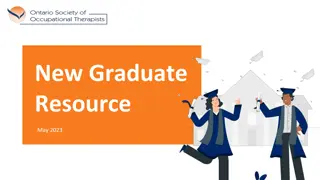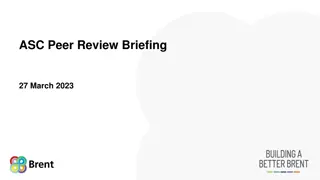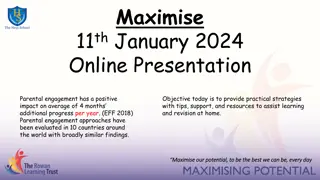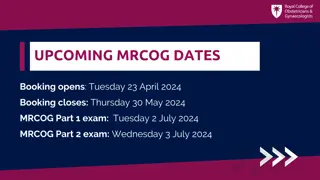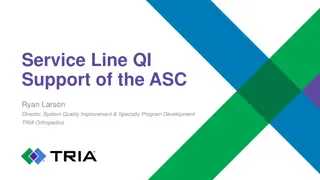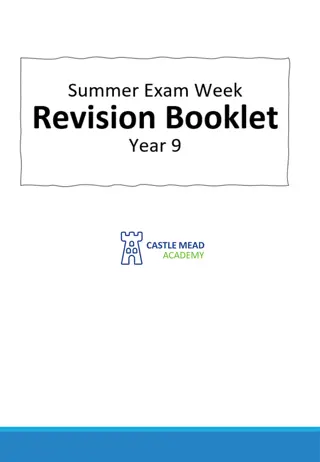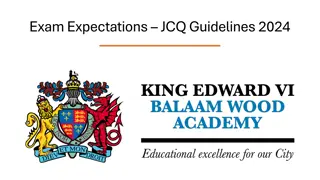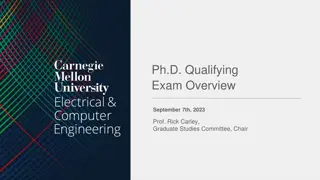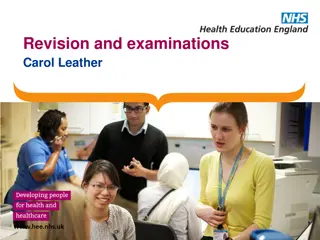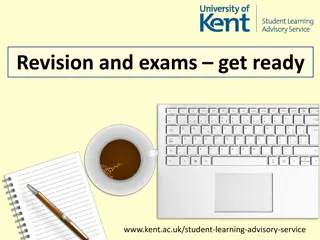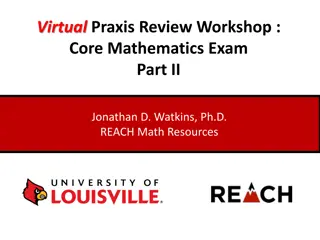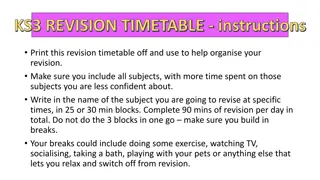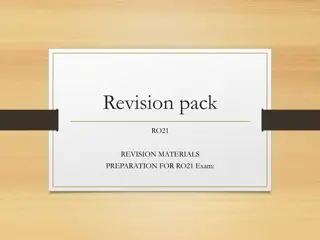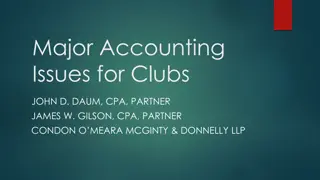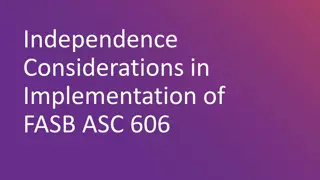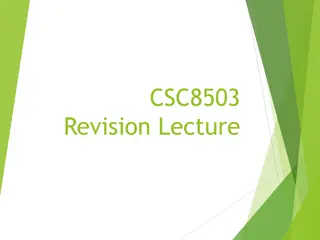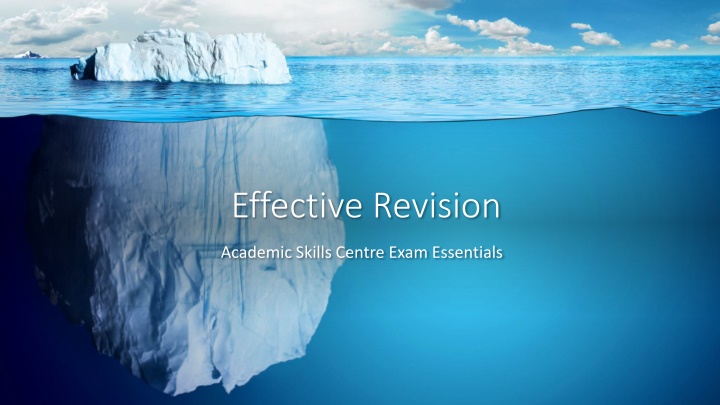
Effective Revision Techniques and Strategies for Academic Success
Enhance your exam preparation with active learning approaches, key concept recall methods, and workshops to thrive in online and on-campus exam environments. Discover how to move beyond passive learning techniques and engage in more effective revision practices. Join the Academic Skills Centre for valuable insights and tips on achieving academic success.
Download Presentation

Please find below an Image/Link to download the presentation.
The content on the website is provided AS IS for your information and personal use only. It may not be sold, licensed, or shared on other websites without obtaining consent from the author. If you encounter any issues during the download, it is possible that the publisher has removed the file from their server.
You are allowed to download the files provided on this website for personal or commercial use, subject to the condition that they are used lawfully. All files are the property of their respective owners.
The content on the website is provided AS IS for your information and personal use only. It may not be sold, licensed, or shared on other websites without obtaining consent from the author.
E N D
Presentation Transcript
Effective Revision Academic Skills Centre Exam Essentials
How do you revise? What techniques have you been using to study and revise so far?
ACTIVE LEARNING PASSIVE LEARNING Active learning v passive learning Focused Specific: goal-or solution- orientated Doing something with the material Deep learning Big picture seeing connections and relationships between topics Unfocused Broad: try to cover/remember everything Memorising material Superficial learning/memorising Compartmentalised difficult to make connections with other material
Reflecting on your approach On reflection, do you feel your approach(es) so far have been: Mostly active? Mostly passive? A mixture of active and passive?
Copying out/rewriting notes Memorising PowerPoints Re-reading notes Highlighting notes or texts It s understandable it s often how we learn to learn Time-consuming Unsustainable too much material Passive - Memorising PowerPoints/lectures is not the goal Ineffective (and passive) Learning Techniques In the past we ve found that students often use these techniques
Key concept recall (aka information retrieval) Mixing (active) techniques also key Active approaches can include: The blank page approach Flashcards Sample Questions/Question Banks Teach it Group study/discussion Not an exhaustive list. For more, see: Effective (and active) Learning Techniques Revision Bites https://learningspaces.dund ee.ac.uk/ctil/recipes/revision -bites-introduction/ The Learning Scientists https://www.learningscientis ts.org/
Next steps and further information More Workshops Mon 5thDec, 12-1pm Thriving in the online exam environment Wed 7thDec, 12-1pm Thriving in the on-campus exam environment
Add your thoughts and questions to this week s Padlet
Further Support from ASC Online Resources One-to one support Appointments: Writing Royal Literary Fund (RLF) writing tutors Academic Skills ASC tutor Full details and booking process on website Revision Bites: https://learningspaces.dundee.ac.uk /ctil/recipes/revision-bites- introduction/ asc@dundee.ac.uk The Learning Scientists: https://www.learningscientists.org/ Quick query drop-ins: No booking required Details on website 9 Dr Gordon Spark, Academic Skills Centre


